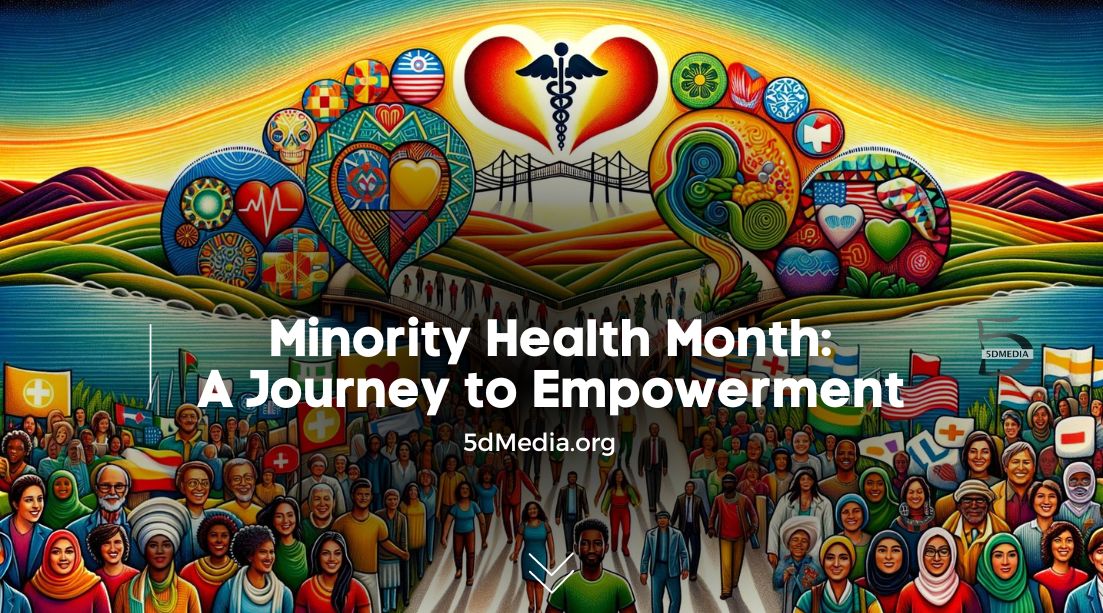The Critical Significance of Minority Health Month: A Journey to Equity and Well-being
April marks a significant period in the health calendar, known as Minority Health Month. It’s a time dedicated to bringing awareness to the unique health disparities that affect racial and ethnic minority groups. To we look into why Minority Health Month is not just a period of reflection but a clarion call for action towards achieving health equity.
Understanding the Roots: The Genesis of Minority Health Month
Minority Health Month originated from the efforts to recognize the ongoing health disparities that minorities face in the United States. The National Minority Health Month Foundation spearheads this initiative with support from health organizations and communities across the nation.
Historical Perspective
The inception of Minority Health Month can be traced back to Booker T. Washington’s establishment of National Negro Health Week in 1915. This was one of the earliest organized efforts to address the health concerns prevalent within African American communities. Over time, this evolved into what we now observe as Minority Health Month, expanding its focus to include all minority groups.
Dissecting Disparities: The State of Minority Health Today
Despite advancements in healthcare, disparities in health outcomes among minority populations persist. These inequalities are evident in areas such as life expectancy, disease prevalence, and access to care.
Life Expectancy and Disease Prevalence
Statistics show that certain minority groups have lower life expectancies compared to their white counterparts. For instance, African Americans and Native Americans face higher rates of diabetes, hypertension, and heart disease.
Access to Care
Access to healthcare remains a critical issue for many minorities. Factors such as socioeconomic status, language barriers, and cultural differences often impede access to quality care.
Spotlight on Solutions: Addressing Health Inequities During Minority Health Month
Minority Health Month serves as an opportune time for healthcare providers, policymakers, and community leaders to focus on bridging these gaps.
Community Engagement and Education
Educational campaigns during this month aim at informing minority populations about preventive measures and healthy lifestyle choices. Community events provide platforms for discussions on nutrition, exercise, mental health, and chronic disease management.
Policy Initiatives
Policymakers are encouraged to create legislation that addresses the root causes of health disparities. This includes advocating for better funding for minority health research and culturally competent healthcare services.
Personal Stories: The Human Element of Minority Health
Personal narratives bring a human touch to the statistics surrounding minority health disparities. Sharing stories helps personalize the struggle many face in accessing adequate healthcare.
Voices from the Community
Hearing from individuals within these communities offers invaluable insights into their experiences with the healthcare system. These testimonials can inspire change by highlighting both challenges and triumphs.
Beyond April: Sustaining Momentum in Advancing Minority Health
While April is a focal point for raising awareness about minority health issues, it’s crucial that efforts continue year-round.
Ongoing Advocacy
Advocacy groups work tirelessly beyond this month to promote policies that support minority health improvements. Their dedication helps ensure that momentum is not lost once April ends.
Research and Development
Continuous research into the causes of health disparities leads to better interventions tailored specifically for minority populations. Investment in such research is vital for long-term progress.
A Call-to-Action for Collective Responsibility
Minority Health Month is more than just a period of heightened awareness; it’s a reminder of our collective responsibility towards creating an equitable society where everyone has an equal chance at leading a healthy life.
As we reflect on this important month, let us commit ourselves not only to be informed but also be active participants in fostering change—change that ensures every individual has access to quality healthcare regardless of their race or ethnicity. Let’s work together towards a future where next year’s Minority Health Month will mark new milestones achieved rather than old battles still being fought.


